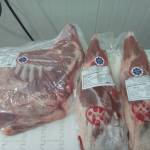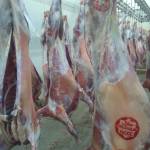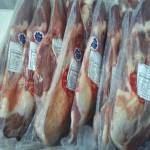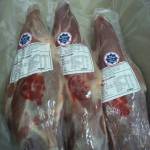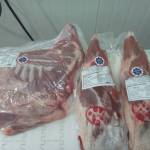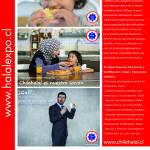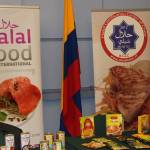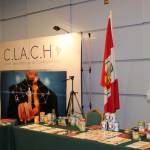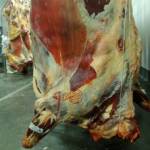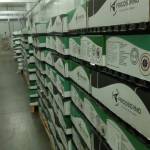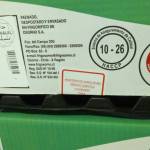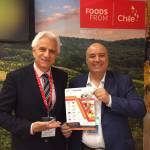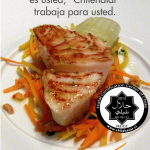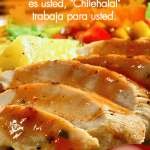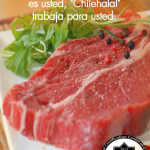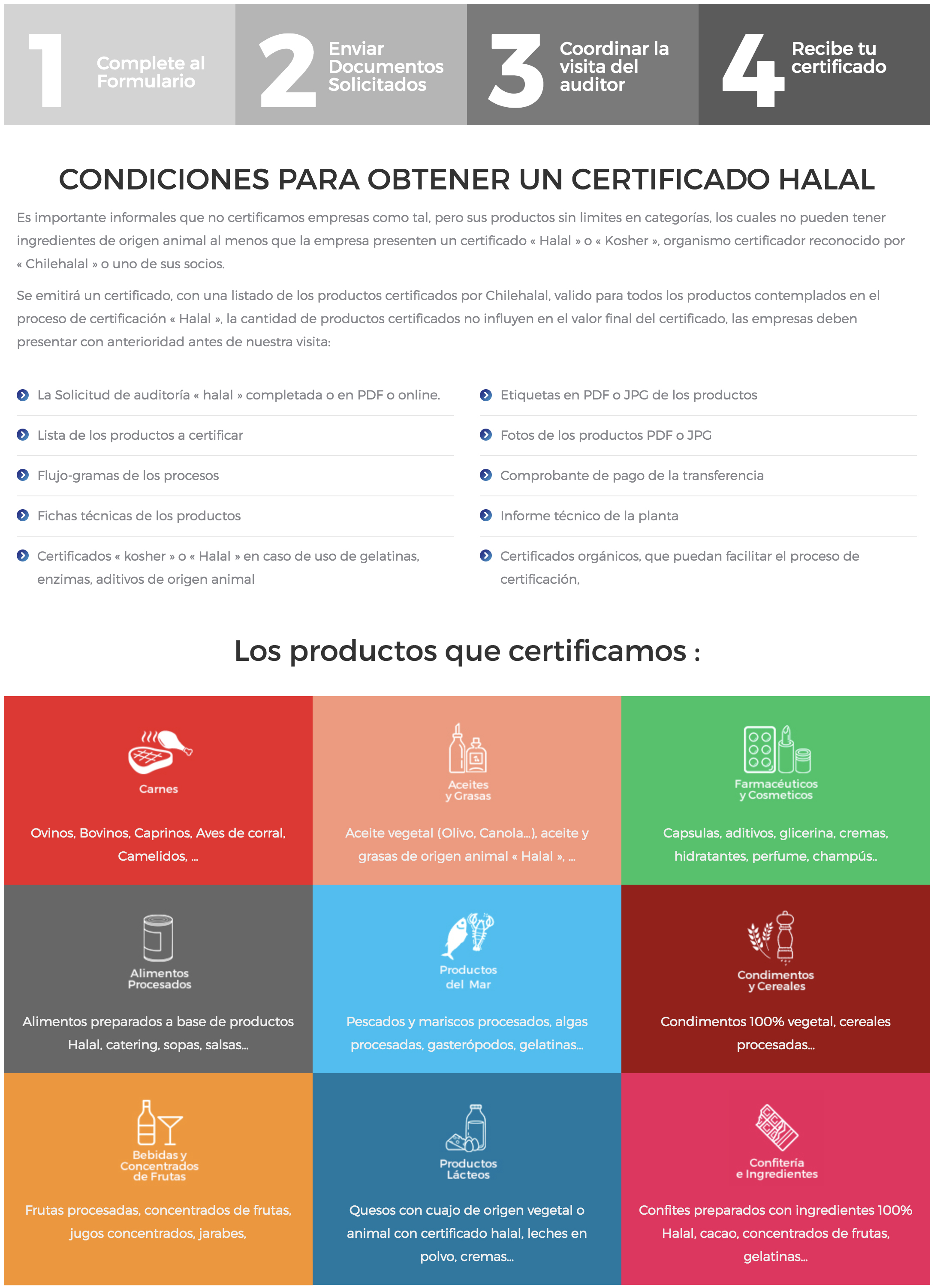
Islamic law defines every aspect of Muslim life and therefore that of food that can and can not be consumed by Muslims, as well as defines the appropriate method of sacrifice of an animal to be fit for consumption, Process known as Halal Sacrifice.
Therefore Halal is an Arabic term that means «permitted» «lawful», and in general, refers to everything that by its characteristics, processes and content is fit for the consumption of Muslims according to Islamic law.
Likewise Haram is an Arabic word meaning «forbidden» «illicit». Islamic law indicates that prohibited products are: pork and pork products; Alcohol and other poisons; Animals not slaughtered according to Islamic law; Blood and products containing blood; carnivorous animals ; Birds of prey, among others.
The Muslim population reaches 2.0 billion worldwide and according to the report prepared by Thompson Reuters for the Government of Dubai, the Halal food market reaches US $ 1.088 billion and predictions for 2025 Halal food will represent the 20% of the world food.
Halal food imports made by Muslim countries are forecast to rise from $ 25.8 billion in 2010 to reach $ 53.1 billion by 2020, where for example the United Arab Emirates will import halal food To values of US $ 8.4 billion by the end of the decade.
As we said at the outset the Halal concept for Muslims applies not only to food and drink, but also to all aspects of everyday life. When it comes to Halal food, most people think of meat products only. However, Muslims must ensure that all foods, particularly processed foods, pharmaceuticals and non-food items, such as cosmetics, are also Halal. Often, these products contain animal by-products or other ingredients that are not fit for consumption or use in their bodies.
The Muslim consumer has differences in its dimensions and preferences of choice of products, which makes the evolution of this market is complex to predict. This is due to the fact that there are many Arab countries with young generations that are more accustomed to the modern way of shopping and places where they can buy all their products at one time and a not less important fact is that 20% grows every year the requirements And Halal worldwide and also about 20% of final consumers are not Muslim, but they know the different advantages of the Halal process.
————————————————————————————-
La ley islámica define cada aspecto de la vida de los musulmanes y por ende el de los alimentos que pueden y no pueden ser consumidos por los musulmanes, así como también define el método apropiado de sacrificio de un animal para que sea apto para su consumo, proceso conocido como Sacrificio Halal.
Por lo tanto Halal es un término árabe que significa “permitido” “licito”, y en general, se refiere a todo aquello que por sus características, procesos y contenido es apto para el consumo de musulmanes según la ley islámica.
Asimismo Haram es una palabra árabe que significa “prohibido” “ilícito”. La ley islámica indica que los productos prohibidos son : carne de cerdo y productos derivados del cerdo; el alcohol y otros tóxicos; animales no sacrificados según ley islámica; sangre y productos que contengan sangre; animales carnívoros ; aves de presa, entre otros.
La población musulmana alcanza los 2,0 billones a nivel mundial y de acuerdo al informe preparado por Thompson Reuters para el Gobierno de Dubai, el mercado de la comida Halal alcanza los US$1.088 mil millones y según predicciones para el 2025 los alimentos Halal representarán el 20% de la comida mundial.
Se pronostica que las importaciones de comida Halal hechas por los países musulmanes y de acuerdo a The Economist Intelligence Unit, subió desde US $25.8 mil millones en 2010 y alcanzará los US $53.1 mil millones en el 2020, donde por ejemplo Emiratos Árabes Unidos importará alimentos halal a valores de US $8.4 mil millones para el final de la década.
Como dijimos en un comienzo el concepto Halal para los musulmanes no sólo aplica a los alimentos y bebidas, sino que también a todos los aspectos de la vida cotidiana. Cuando se trata de comida Halal, la mayoría de la gente piensa en productos de carne solamente. Sin embargo, los musulmanes deben garantizar que todos los alimentos, en particular los alimentos procesados, productos farmacéuticos y artículos no alimentarios, como los cosméticos, también son Halal. Con frecuencia, estos productos contienen subproductos animales u otros ingredientes que no son aptos para su consumo o uso en sus cuerpos.
El consumidor musulmán posee diferencias en sus dimensiones y preferencias de elección de productos, lo que hace que la evolución de este mercado sea complejo de predecir. Lo anterior debido a que existen muchos países árabes con generaciones jóvenes que están más acostumbrados a la manera moderna de hacer compras y a lugares donde pueden comprar todos sus productos de una sola vez y un dato no menor es que el 20 % crece cada año los requerimientos y Halal a nivel mundial y que también cerca del 20 % del consumidores finales no son musulmanes, pero saben las distintas ventajas del proceso Halal.
OBLIGATION TO INFORM THE CONSUMER
The obligation is incumbent on operators: withdrawal from the market of foodstuffs where it considers that it has been manufactured, processed or distributed does not comply with the regulatory requirements in relation to labeling, ingredient list, date limits or for the safety of Products or the incompatibility of the products for human consumption.
The competent authorities will be informed when the products are no longer in their hands. It should also inform the consumer, especially if the product poses a health risk. You must tell them effectively and clearly the reasons for the withdrawal or recovery of products.
The operator of a business must take the same steps, but within the limits of the company itself. It will also help you to follow the movement of these products, in collaboration with the producer, the manufacturer, and all the people who have had the goods in their possession.
The operator of the company is required to feed the same obligations: if he has reason to believe that a food violates the regulatory requirements, food must be withdrawn immediately and reported to the competent authority.
The food can be destroyed, according to the results issued by that authority. It can also provide all the information necessary to trace the steps of the product route to the animals.
If not, ie if the operator is aware of these facts, without fulfilling their obligations to consumers and the administration, their responsibility will be taken to the basis of responsibility for defective products.
OBLIGACIÓN DE INFORMAR AL CONSUMIDOR
La obligación recae sobre los operadores : el retiro del mercado de productos alimenticios cuando considere que se ha fabricado, procesado o distribuido no cumple con los requisitos normativos en relación con el etiquetado, la lista de ingredientes, la fecha límites o para la seguridad de los productos en el peligro o la incompatibilidad de los productos para el consumo humano.
Se informará a las autoridades competentes cuando los productos ya no están en sus manos. También debe informar al consumidor, especialmente si el producto presenta un riesgo para la salud. Debe decirles efectiva y clara las razones de la retirada o recuperación de productos.
El operador de un negocio debe tomar las mismas medidas, pero dentro de los límites de la propia empresa. También le ayudará a seguir el movimiento de estos productos, en colaboración con el productor, el fabricante, y todas las personas que han tenido los bienes en su poder.
El explotador de la empresa se requiere para alimentar a las mismas obligaciones : si tiene razones para creer que un alimento viola los requisitos reglamentarios, se debe hacer inmediatamente la retirada de los alimentos e informar a la autoridad competente .
La comida puede ser destruido, de acuerdo con los resultados emitidos por esa autoridad. También puede proporcionar toda la información necesaria para trazar los pasos de la ruta del producto a los animales.
Si no, es decir, si el operador es consciente de estos hechos, sin el cumplimiento de sus obligaciones con los consumidores y la administración, su responsabilidad será llevada a la base de la responsabilidad por productos defectuosos.


